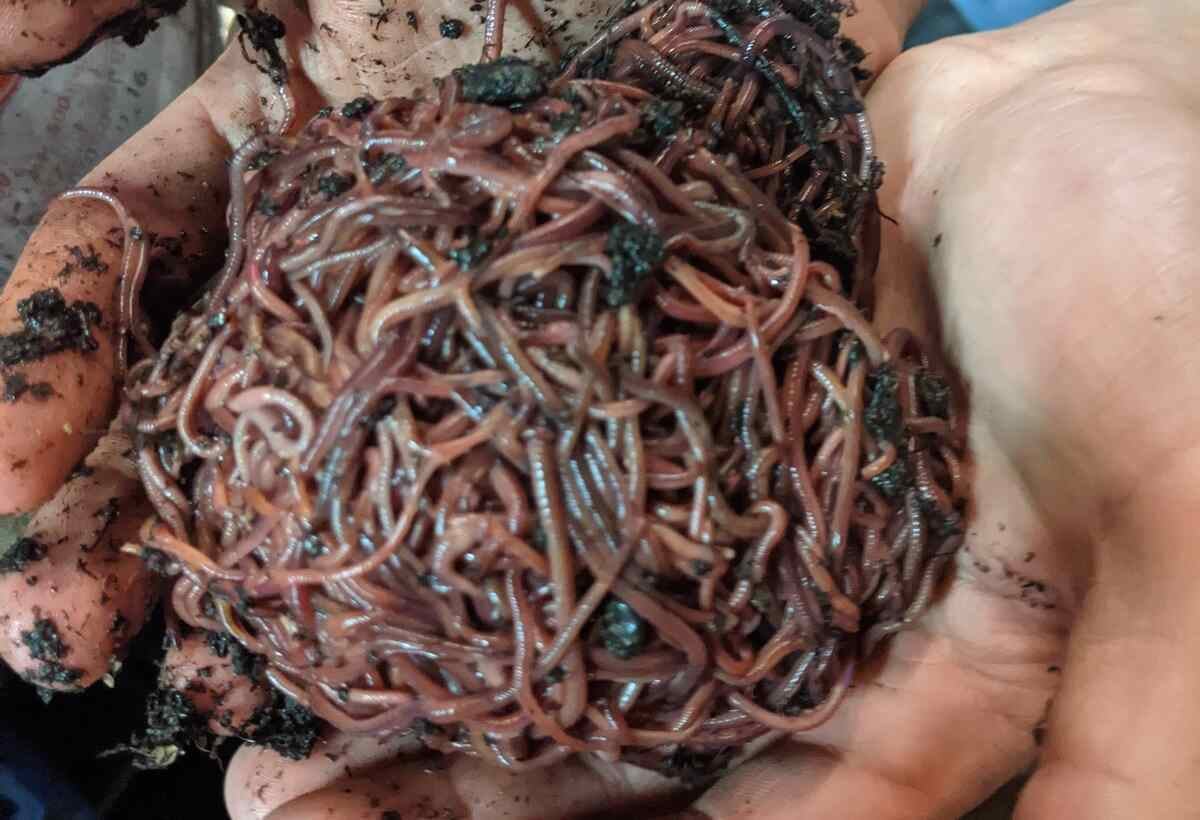Red Wiggler Worms Demystified: Opening the Secrets of Vermiculture for Greener Living and Nutrient-Rich Dirt
In the world of lasting techniques for enhancing dirt top quality and promoting eco-conscious living, red wiggler worms play a crucial yet frequently overlooked duty. These humble creatures possess the amazing capacity to transform organic waste right into nutrient-rich castings that function as a powerful natural plant food. By delving right into the world of vermiculture, one can reveal a wide variety of advantages that prolong far past typical composting techniques. Comprehending the intricacies of taking care of these worms, optimizing their environment, and harnessing their castings can result in a greener way of life and healthier soil for plants to flourish.
The Role of Red Wiggler Worms
Red Wiggler worms play a vital role in composting systems by effectively breaking down natural matter into nutrient-rich spreadings. These starved eaters consume a variety of natural products, such as kitchen area scraps, yard waste, and paper products. As they feed, the worms' digestive system procedures break down the raw material right into a fine, dark, and nutrient-dense material referred to as worm castings or vermicompost.
The castings generated by Red Wiggler worms are extremely useful for soil health and plant growth. They are rich in necessary nutrients like phosphorus, nitrogen, and potassium, which are essential for sustaining healthy and balanced plant growth. Furthermore, worm spreadings contain valuable microorganisms and enzymes that assist enhance dirt structure, increase water retention, and improve nutrient uptake by plants.
Benefits of Vermicomposting

Additionally, vermicompost, the nutrient-rich final product of vermicomposting, acts as an outstanding organic plant food and soil conditioner. It improves dirt structure, enhances dirt aeration, and boosts soil wetness retention. These residential or commercial properties add to healthier plants with stronger root systems and much better resistance to pests and diseases. Vermicompost also improves the soil with essential nutrients like nitrogen, phosphorus, and potassium, advertising plant growth and general soil fertility.
Furthermore, vermicomposting supports sustainable horticulture techniques by giving a all-natural and chemical-free choice to artificial plant foods. Red Wiggler Worms. This ecologically friendly strategy not just improves the soil yet likewise helps in reducing dependence on dangerous chemicals, promoting a greener and extra lasting method of horticulture
Setting Up a Worm Bin
When establishing a worm bin for vermicomposting, proper arrangement is essential to make sure the success visit this website of the composting process. The initial step in establishing up a worm bin is choosing an ideal container.
After adding the bed linen, introduce the red wiggler worms to the bin. It is advised to begin with a tiny number of worms and progressively increase as they multiply. The worms ought to then be given with food scraps such as vegetables and fruit peels, coffee grounds, and eggshells. It is essential to avoid adding meat, dairy products, oily, or salty foods to avoid attracting pests and developing undesirable smells.
Regularly check the dampness levels and temperature in the worm container to make certain optimal problems for the worms. With correct arrangement and maintenance, the worm bin will successfully transform natural waste into nutrient-rich compost for your plants and Get More Info yard.
Collecting Worm Castings
To efficiently accumulate nutrient-rich worm castings from your vermicomposting system, a methodical harvesting technique is essential. There are a couple of vital actions to comply with to guarantee a successful procedure when it comes time to gather the worm castings. Stop including fresh food scraps to one side of the worm bin for a pair of weeks prior to gathering. This urges the worms to move sideways with fresh bedding and food, making it easier to scoop out the spreadings from the opposite.

Troubleshooting Common Issues
Determining and dealing with common obstacles that might occur during the vermicomposting process is vital for preserving a healthy and productive worm bin. Adding excess food scraps can lead to a build-up of moisture and level of acidity in the worm container, potentially hurting the worms. An additional problem is unpleasant smells emanating from the worm container.
In addition, if the worm population is decreasing or the worms show up harmful, maybe as a result of ecological stressors such as severe temperatures or pH degrees. Checking these factors and making required adjustments is necessary for the health of the worms. By repairing these common concerns immediately, vermicomposters can guarantee a effective and smooth vermicomposting procedure while preserving a growing worm population.

Verdict
In conclusion, red wiggler worms play a vital function in vermiculture by damaging down natural issue right into nutrient-rich soil. Establishing up a worm container is important for successful vermiculture, and gathering worm castings supplies beneficial compost for horticulture.
As they feed, the worms' digestive system processes damage down the natural matter into a penalty, dark, and nutrient-dense material understood as worm castings or vermicompost.
The spreadings generated by Red Wiggler worms are extremely beneficial for dirt wellness and plant development. Including excess food scraps can lead to a build-up of wetness and acidity in the worm container, potentially hurting the worms.Furthermore, if the worm populace is declining or the worms show up undesirable, it might be due to ecological stress factors such as severe temperatures or pH levels. Establishing up a worm bin is necessary for effective vermiculture, and collecting worm spreadings offers valuable compost for horticulture.